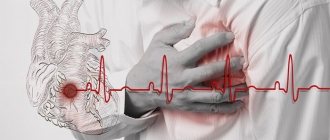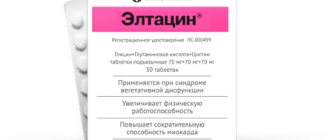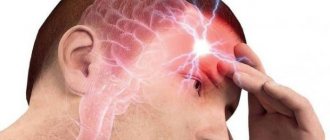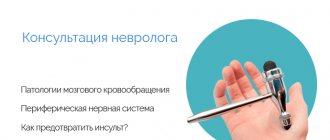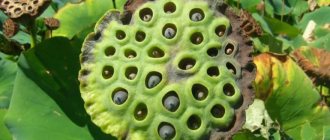- High results, no side effects
- Treatment without pills and surgeries
- Initial consultation with a doctor is FREE
Tibetan medicine considers vegetative-vascular dystonia as a disorder of the Wind system. It is responsible for nervous regulation and the cardiovascular system. Therefore, the symptoms of VSD are associated primarily with vascular and nervous (autonomic) disorders.
For disorders of the Wind system, Tibetan medicine recommends oily, sweet foods. This means that it is better to forget about low-calorie diets based on raw vegetables, herbs and fruits. These products have a cooling effect, and the Wind system has the nature of cold. Therefore, they aggravate the symptoms of vegetative-vascular disorder and add new ones to them - insomnia, irritability, anxiety. Low-calorie diets and raw food diets for VSD can provoke the development of neuroses or mental disorders, as well as complications in the form of panic attacks.
Fats
Oily foods are foods that are high in fat. But not all fats are equally beneficial for VSD. The best butter is ghee. This is a universally useful product for any disorders of the Wind system, so it should take a leading place in the diet. Butter is less healthy. Sunflower and sesame oils warm, so they are completely acceptable. Olive is cooling, but good for the nervous system. But it is better to exclude corn and rapeseed oils.
Blood vessels are connected not only with the Wind system, but also with the Mucus system, and it does not like animal fats. Therefore, they should be consumed with caution (although fatty meat is not prohibited). And under no circumstances should you drink animal fats with chilled drinks.
Cardiologist-rheumatologist Valentina Timofeevna Makarova, d/p No. 7 (article dated May 23, 2019)
Nutrition of patients diagnosed with VSD. Panic attacks
Modern psychotherapeutic practice, paying attention to panic states and overcoming them, puts the causes of panic attacks at the forefront.
However, factors such as nutrition and diet are often overlooked by psychotherapists.
It is important to consider which foods are preferable to eat for people prone to chronic panic attacks, which substances they would like to reduce or minimize their consumption, and which foods are best avoided once and for all.
Psychotropic drugs have repeatedly shown their low effectiveness. However, chemical imbalances in the body often contribute to neuropsychiatric disorders. In the same difficult life circumstances, some people begin to experience panic attacks, while others do not. Why? The fact is that susceptibility to panic, as well as resistance to it, depend on the state of the body and whether it has enough for a normal life.
Knowing which chemicals are beneficial for the nervous system and which are harmful, you can significantly improve the condition of a person experiencing panic attacks, and even help him get rid of them completely.
The body definitely needs this
Any neurotic and “alarmist” is familiar with the words: calcium and serotonin. These are two essential substances, the catastrophic lack of which leads a person to the brink of a neuropsychic breakdown.
To restore calcium balance in the body, you need to eat:
- fresh cottage cheese
-cheese
-fermented milk products (kefir, fermented baked milk, sour cream)
-fish of the salmon family
- almonds
Of the serotonin-containing foods, bananas should come first. They are very high in calories and hypoallergenic. Bananas are one of the healthiest foods today.
There are other substances necessary for a healthy body: potassium, zinc, magnesium, various vitamins.
To replenish potassium reserves in the body, you need to eat dried fruits - prunes and dried apricots, peanuts, legumes, and potatoes.
It is important to remember that magnesium is found in pistachios, barley, millet, and seaweed. Magnesium eliminates nervous tics and relieves muscle tension, so eating it is the best prevention of neurotic disorders and panic attacks.
Pork and lamb are rich in zinc; zinc is also present in turkey meat, peas, and oatmeal.
Chromium is responsible for reducing anxiety levels, so for panic attacks, products containing chromium are recommended: various types of freshwater fish (capelin, crucian carp, pike and others). Ukha is considered one of the healthiest soups, and for the “panic patient”, who most often has nutritional problems, it becomes indispensable. A high percentage of chromium content was also found in pearl barley, shrimp, and beets.
Finally, vitamin C foods include: citrus fruits, black currants, garlic and cauliflower. And B vitamins are found in porcini mushrooms and walnuts (B9), eggs, liver and kidneys (B12).
All this should be taken into account in order to replenish the exhausted body of a person suffering from panic with the substances it needs. At the same time, it makes sense and is possible to do without drug treatment. After all, vitamins and other beneficial substances contained in food are both anti-stressors and antidepressants.
The role of healthy eating in a person’s life cannot be overestimated. If we are talking about a person who is in a weakened, painful state, suffering from panic attacks, then it is not difficult to guess that organizing a healthy diet will be an important step towards his recovery and return to normal life.
What foods are best to avoid?
There are foods and substances that a patient with panic attacks should completely avoid using.
First of all, we are talking about such a stimulant substance as nicotine.
It disrupts the functioning of the nervous system, has a destructive effect on the heart muscle, poisons the body, excites and provokes convulsive and panic readiness.
Alcohol is also a strong stimulant. Initially exciting and stimulating a number of brain functions, it then depresses and suppresses them.
The category of undesirable substances also includes those containing caffeine: tea, coffee, carbonated drinks.
For those who suffer from panic attacks, it is important to control the salt content in their food. Salt is believed to increase blood pressure. It also increases the load on the heart muscle and removes essential potassium from the body.
Gluttony, as a way of dealing with stress, “eating problems” can also provoke panic attacks if the body is in panic readiness.
Overeating, especially at night, causes a feeling of oppressive anxiety, unmotivated awakenings followed by night vigils. All this can lead to panic attacks at night or early morning.
Don't be too demanding
Of course, it is difficult for a weakened person to give up some eating habits, establish a strict diet and obey it. Compromises in nutrition are acceptable. There is no need to be fanatically obsessed with diet. Panic attacks are a good reason to start treating yourself with love.
Vegetables
Most vegetables have a sweet taste and are generally useful for VSD, but only after heat treatment and with the addition of ghee. These are primarily carrots, pumpkins, and potatoes.
The best oily product for VSD is fatty fish. Any, but especially sea. It could be salmon, mackerel or herring. You need to eat oily fish regularly. It warms (useful for Wind, Mucus), has a sweet taste and is ideal for nutrition in case of vegetative-vascular dystonia in any form - boiled, stewed, baked, fried. But not in dried form, since dry, light foods are harmful to the Wind.
What to eat for vegetative-vascular dystonia
VSD has not yet been fully studied. It is difficult to diagnose, and the person himself, having discovered a number of signs, does not immediately turn to specialists, hoping that poor health is a temporary phenomenon, and panic attacks are a figment of the imagination. But, if it is already reliably known that the patient suffers from this disease, it is necessary to carry out therapy to avoid exacerbations. It is complex in nature, and nutrition is one of the points that can alleviate the course of the disease.
The need for food restrictions
When diagnosed with vegetative-vascular dystonia, there is no need to limit yourself in nutrition. That is, you can eat everything that a person loves and is used to. But, it is still worth choosing products of natural origin and excluding from the diet concentrates and surrogates, which are based on chemicals.
You need to carefully select foods for your diet and try not to overuse harmful and unhealthy foods. It is a well-known fact that if you regularly eat fast food, any disease can worsen, even one that has not made itself felt for a long time. You should be especially attentive to the composition of products and do not eat those that contain trans fats. They occupy first place among the reasons causing the development of VSD. Therefore, in case of vegetative-vascular dystonia, in order to avoid exacerbations, you should completely abandon them. Trans fats should also be avoided by healthy people to avoid becoming another victim of this disease.
Healthy eating
The food consumed by a person suffering from vegetative-vascular dystonia should, in addition to being healthy, also be varied. The diet should be complete, with a predominance of fruits and vegetables. It is worth focusing on products from local producers, since imported ones undergo additional processing for longer storage and transportation. This reduces their usefulness to a minimum level. Food products such as chocolate, coffee, tea, canned food and various pickles should be minimized and, if possible, completely abandoned. An exception can be made only for sauerkraut.
When relieving an acute condition of the disease, fasting is often used as a treatment method. It can improve the health of the body and reduce the fear of sudden death - the main symptom of VSD.
With VSD, the nervous system is affected, so the diet during the disease should be rich in foods high in B vitamins, which are necessary for the functioning of the nervous system. Vitamin C is also important, and a wide range of microelements is also necessary. Moreover, it is desirable that they enter the body with food, and not with multivitamins and dietary supplements. Since chemically synthesized complexes contain a minimal amount of vitamins, the likelihood that they are absorbed by the body is questionable.
Problems with nutrition and digestion with VSD
A patient suffering from VSD notices a deterioration after certain products enter his body. It is not worth looking for the exact product that caused the exacerbation of the disease. After all, deterioration can be caused by a malfunction of the nervous system at the moment, or by other factors.
If the disease is accompanied by an upset stomach, then it can be aggravated by both plant products and fatty foods. If they are completely excluded from the diet, improvement may not occur, and the condition may only worsen. The fact is that if irritable bowel syndrome has developed as a result of certain conditions, then giving up old ones or taking new foods will have little effect on the general condition. It is necessary to eradicate the cause of the symptom.
It is worth introducing soothing teas consisting of herbal teas into your diet. But you should take them only after studying the instructions.
You should not overeat during VSD; this can provoke a number of attacks that can aggravate the condition and cause an exacerbation of vegetative-vascular dystonia.
Author: K.M.N., Academician of the Russian Academy of Medical Sciences M.A. Bobyr
Cereals
Buckwheat is light and cold, so it is not the best choice of cereals for VSD. The best choice would be oatmeal. Even millet porridge is preferable to buckwheat. However, buckwheat can be well seasoned with melted butter and warming foods can be added to it - fried onions, mushrooms, boiled eggs, pepper. In this case, you will get a useful product.
Rice is also a useful cereal. It has a neutral effect, but harmonizes the body's systems and has a positive effect on vegetative-vascular disorders. You can safely use it, in any quantity, but don’t forget to flavor it well with melted butter! Dry, hard, undercooked rice without oil is harmful for VSD.
Spices
Pepper and other spices - cinnamon, ginger, turmeric, allspice, nutmeg, cloves are very useful for Wind disorders. If you have symptoms of VSD, they must be included in your daily diet. A combination of garlic, hot chili pepper and ghee gives a good therapeutic and prophylactic effect. For greens, it is better to use dill and cilantro.
In general, Tibetan medicine recommends any warming products for VSD - poultry (chicken, goose, duck, turkey), lamb, liver, egg yolks, nuts (walnuts, pine, cashews).
How to use class=”aligncenter” width=”992″ height=”247″[/img]
or call +7 Moscow
Free consultation Survey, examination, pulse diagnostics from 30 minutes
Diagnostics Ultrasound, MRI, Laboratory tests (as prescribed)
Treatment Individual plan

